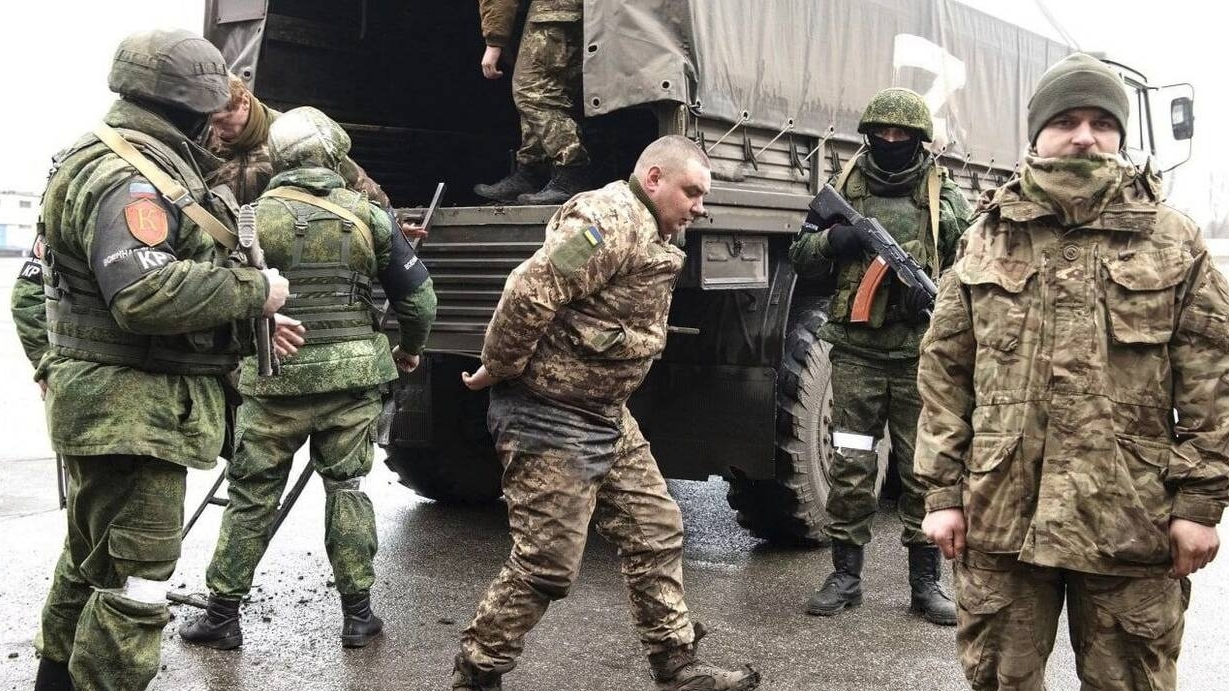"Only devils live and work in Taganrog." Ukrainian POWs about the Russian prison
Estimated reading time: 3 minutes
In its latest publication, the BBC presents the accounts of Ukrainian soldiers who were in Russian captivity. They all agree about serious violations of humanitarian law, describing daily abuse.

Torture, murder and cruelty. Ukrainian soldiers return in a terrible state
The exchange of prisoners between Ukraine and Russia is a rare diplomatic achievement of this war, thanks to which approximately 2 500 people have been freed since the beginning of the invasion. Ukrainians. However, this is only a drop in the ocean of needs, because according to human rights organizations, up to 10 000 people can still be held in Russian prisons. And they cannot count on humane treatment, although Moscow is obliged to do so by international treaties, which is confirmed by the stories told by the freed soldiers.

The Russians abuse the prisoners mentally and physically
Dmytro Lubinets, the Ukrainian human rights ombudsman and one of the officials involved in the negotiations on the exchange of prisoners with Moscow, argues that nine out of ten former prisoners claim that they were mentally and physically tortured in Russian captivity.
Although the BBC emphasizes that it was unable to independently verify the stories told by several freed Ukrainian prisoners held in Taganrog Remand Center No. 2, they were confirmed by other detainees, and their details were made available to human rights organizations.
The fact that the Russian government did not allow any outside entities, including the United Nations and the International Committee of the Red Cross, to visit the facility where only Russian prisoners were held before the war adds credibility to the stories told by the released prisoners.
Hi boys. Do you know where you are? You will rot here for the rest of your life (...) This is how they treated everyone. They hammered like nails - one of the Ukrainian prisoners of war, Artem Seredniak, describes his experience after arriving in Taganrog.

This is a serious violation of international law
There is no reason to disbelieve when Ukrainians talk about extreme violence and ill-treatment by Russian guards. Among other things, beating women and men, including in the kidneys and chest, electrocuting them or sticking needles under their fingernails during daily inspections and interrogations, constant threats, intimidation and forcing them to give false incriminating statements, or starvation and lack of availability of medical assistance.
https://twitter.com/BBCWorld/status/1691679581403509129
As BBC journalists explain, citing accounts of released prisoners, some prison staff seem to be strongly influenced by Vladimir Putin's narrative about “denazification”. In the case of the detainees, this was evident in the way the guards showed particular interest in anything that they believed could be interpreted as pro-nazi, such as tattoos.
The guards initially looked for swastikas or similar things. But in reality, if you had any kind of tattoo, you were seen as a bad guy
says 34-year-old doctor Serhiy Rotchuk, who came to Taganrog from Azovstal and told about the problems his tattoos of a raven or the Jedi Order from Star Wars caused him in captivity.
Women could not count on better treatment either, because, as Iryna Stohnii, a 36-year-old nurse, says, they were malnourished, forced to undress in front of the guards, dragged out of their cells by their hair and raped.
Only devils live and work in Taganrog.




